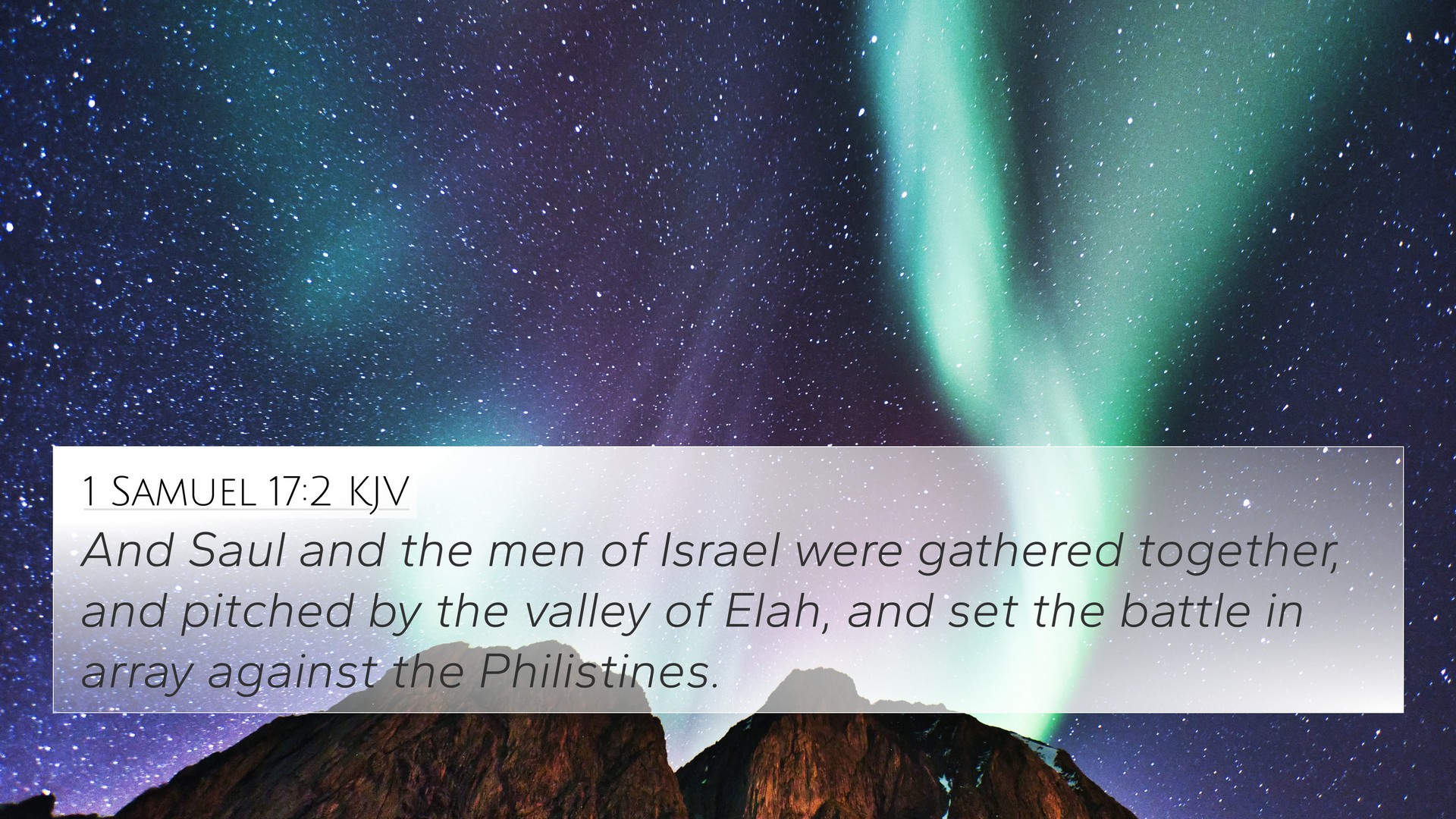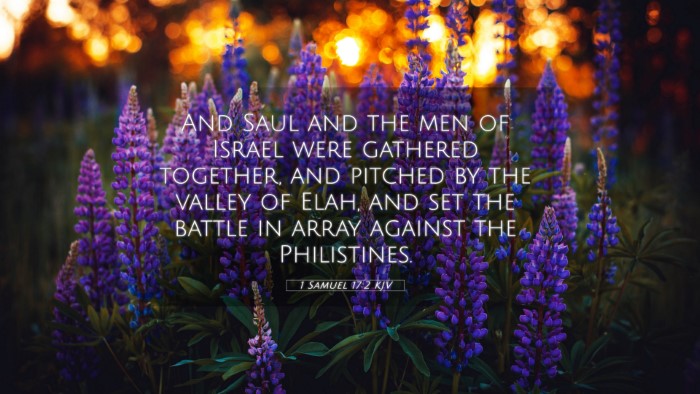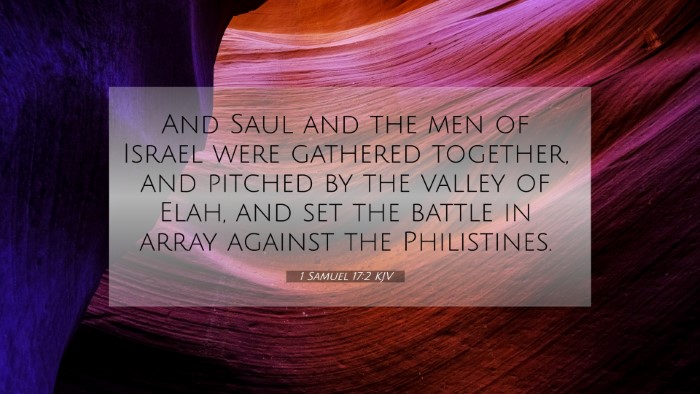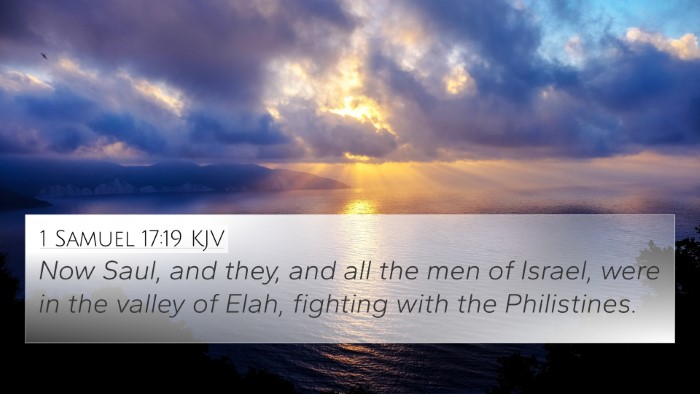Understanding 1 Samuel 17:2
1 Samuel 17:2 states, "And Saul and the men of Israel were gathered together, and they pitched by the valley of Elah, and set the battle in array against the Philistines."
This verse situates the narrative of David and Goliath within a broader context of conflict between Israel and the Philistines, highlighting the Israelite army's preparations for battle.
Context and Background
In this passage, King Saul leads the Israelites in a battle against the Philistine forces. The valley of Elah serves as the battleground. Understanding the historical and cultural context of the conflict is essential in grasping the implications of this verse.
Commentary Insights
Matthew Henry's Commentary
Matthew Henry emphasizes the significance of collective Israelite action under Saul's leadership during a time of crisis. He notes the importance of unity amongst the Israelites as they face a common enemy. The phrase "set the battle in array" illustrates their preparation, reflecting readiness for confrontation, both physically and spiritually.
Albert Barnes' Commentary
Albert Barnes focuses on the geographical and military aspects of the setting. The mention of the valley of Elah is crucial as it signifies the strategic positioning of the Israeli army. Barnes points out that the fear and apprehension among the soldiers resulted from the intimidating presence of Goliath, the champion of the Philistines.
Adam Clarke's Commentary
Adam Clarke provides additional context regarding the nature of the conflict. He highlights that the Philistine army's taunts were designed to demoralize the Israelites. Clarke suggests that the gathering of Israelite soldiers demonstrates both their bravery and the emotional strain of facing a formidable opponent like Goliath.
Thematic Connections
-
Theme of Battle: The verse sets the stage for a key biblical motif—the struggle between good and evil, Israel and its adversaries.
-
Leadership: Saul’s leadership during crises reflects the qualities expected of those in authority, prompting reflection on how spiritual leadership affects communal faith.
-
Faith vs. Fear: The Israelite's preparedness contrasts with their underlying fear of the Philistine champion, which resonates with modern struggles of faith amid trials.
Bible Verse Cross-References
The analysis of 1 Samuel 17:2 reveals several pertinent connections between Bible verses, providing a foundational understanding of its significance:
- 1 Samuel 17:10: Goliath challenges Israel, demonstrating the high stakes of the conflict.
- Psalm 44:5: Invoking God’s help in battles reflects the theme of divine intervention.
- Exodus 14:14: The Lord fighting for Israel showcases the recurring theme of God's protective power.
- Deuteronomy 20:1-4: God’s laws regarding warfare outline Israel's spiritual reliance during conflict.
- Romans 8:31: "If God is for us, who can be against us?" resonates with the fears faced by Saul and his men.
- Philippians 4:13: Strength through faith is a powerful motif against overwhelming odds.
- Hebrews 11:32-34: Faith that conquers nations exemplifies the victory possible through reliance on God.
- 2 Corinthians 10:3-5: Spiritual warfare parallels to the physical battle in 1 Samuel, encouraging modern believers about spiritual resilience.
- Ephesians 6:10-12: The nature of spiritual battles ties into the physical confrontations depicted in Samuel.
- 1 Chronicles 10:1: Offers further context on Israel's battles with the Philistines.
Conclusion
1 Samuel 17:2 serves as a critical verse in the narrative of David and Goliath, emphasizing themes of battle preparation, leadership, and reliance on divine intervention in the face of fearsome opposition. By exploring this verse alongside related scriptures, believers are encouraged to look at their struggles through the lens of faith and community. The connections made through cross-referencing provide a holistic view of how Scripture supports its themes throughout biblical history.




